How To Get Into Ppc Marketing?
Are you interested in diving into the world of PPC marketing? Want to learn how to effectively leverage this powerful tool to grow your online presence? Well, you’ve come to the right place! In this article, we’ll show you exactly how to get into PPC marketing and drive targeted traffic to your website. So, hold on tight and get ready to unlock the secrets of successful pay-per-click advertising!
Now, you might be wondering, what exactly is PPC marketing? Well, let me break it down for you. PPC, or pay-per-click, is a digital advertising model where advertisers pay a fee each time their ad is clicked. It’s like an auction, where businesses bid for ad placement on platforms like Google Ads or Facebook Ads. The beauty of PPC marketing lies in its ability to target your ideal audience and drive qualified traffic to your website, resulting in higher conversions and increased sales.
So, how can you get started in PPC marketing? First things first, you need to understand your target audience and the keywords they’re using to find products or services similar to yours. Keyword research is essential for running successful PPC campaigns. Once you’ve identified your keywords, it’s time to create compelling ads that grab the attention of potential customers. With effective ad copy and eye-catching visuals, you’ll be well on your way to attracting clicks and driving traffic to your website.
So, buckle up and get ready to embark on your PPC marketing journey. In the following sections, we’ll delve deeper into the world of PPC, covering everything from campaign setup and keyword selection to ad creation and optimization. By the end, you’ll have the knowledge and tools to launch your first successful PPC campaign and take your online marketing efforts to new heights. Let’s get started on this exciting adventure together!
1. Research the basics of PPC marketing.
2. Familiarize yourself with popular PPC platforms like Google Ads and Facebook Ads.
3. Learn about keyword research and how to create effective ad campaigns.
4. Understand bidding strategies and budget management.
5. Gain practical experience by running your own PPC campaigns or freelancing for clients.
6. Stay updated on industry trends and continuously improve your skills. With dedication and practice, you can excel in PPC marketing!
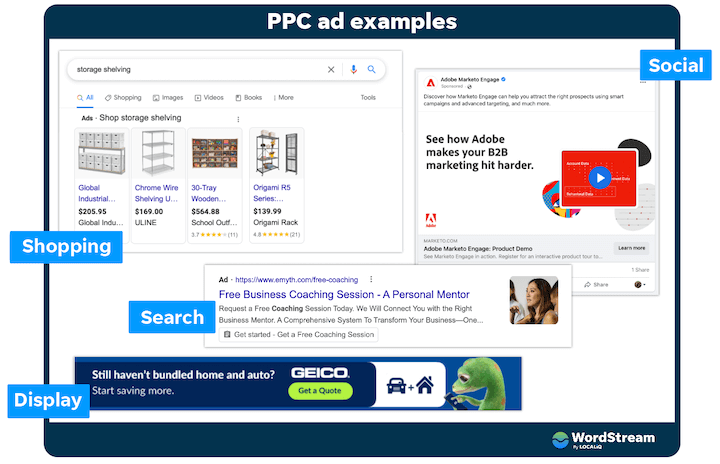
How to Get Into PPC Marketing: A Comprehensive Guide
Are you interested in digital marketing and looking for a rewarding career path? PPC marketing might be the right fit for you. Pay-per-click (PPC) marketing is a form of internet advertising where advertisers pay a fee each time one of their ads is clicked. It’s a dynamic and ever-evolving field that offers great opportunities for growth and success. In this comprehensive guide, we will take you through the essential steps to get into PPC marketing, from understanding the basics to mastering the strategies and tools needed for success.
The Basics of PPC Marketing
Before diving into the intricacies of PPC marketing, it’s essential to understand the basics. PPC marketing is all about driving targeted traffic to websites by placing ads on search engines and other platforms. The ads are displayed to users who are searching for specific keywords or browsing websites related to the advertiser’s industry. Every time an ad is clicked, the advertiser pays a small fee to the platform hosting the ad.
To get started in PPC marketing, you need to familiarize yourself with the various platforms available, such as Google Ads, Bing Ads, and social media advertising platforms like Facebook Ads and LinkedIn Ads. Each platform has its own unique features and targeting options, so it’s important to understand their differences and choose the ones that align with your marketing goals.
You will also need a solid understanding of keywords and how to conduct keyword research. Keywords are the foundation of PPC marketing, as they determine when and where your ads will appear. Conducting thorough keyword research will help you target the right audience and ensure that your ads are shown to users who are actively searching for the products or services you offer.
The Importance of Ad Copy and Landing Pages
Creating compelling ad copy and high-converting landing pages is crucial for PPC marketing success. Ad copy is the text that appears in your ads and plays a significant role in attracting clicks. It should be concise, persuasive, and aligned with your target audience’s needs and interests. A well-crafted ad copy can make a significant difference in driving clicks and conversions.
Landing pages are the web pages that users are directed to after clicking on your ads. They should be designed to provide users with a seamless and relevant experience, leading them to take the desired action, such as making a purchase or filling out a form. Optimizing your landing pages for conversion is essential to maximize the return on your PPC investment.
Continuous testing and optimization are key in PPC marketing. A/B testing different variations of ad copy, landing pages, and targeting options can help you identify what works best for your audience and generate better results over time.
Understanding Bidding Strategies
One of the fundamental aspects of PPC marketing is bidding on keywords. Bidding determines how much you are willing to pay for each click and plays a critical role in ad placement and visibility. Different bidding strategies can be employed, depending on your goals and budget.
The most common bidding strategies include:
- Manual CPC Bidding: You set the maximum amount you’re willing to pay for a click.
- Enhanced CPC Bidding: The platform adjusts your bids in real-time to optimize for conversions.
- Target CPA Bidding: You set a specific cost per acquisition (CPA) target, and the platform automatically adjusts your bids to achieve it.
- Target ROAS Bidding: You set a specific return on ad spend (ROAS) target, and the platform automatically adjusts your bids to achieve it.
Choosing the right bidding strategy requires a thorough understanding of your campaign goals, budget, and expected outcomes. It’s essential to monitor and analyze your campaigns regularly to ensure that you are achieving the desired results and making the most out of your advertising budget.
Tools and Resources for Success
As a PPC marketer, you’ll need access to various tools and resources to streamline your campaigns and drive optimal results. Here are some essential tools and resources:
- Keyword Research Tools: Tools like Google Keyword Planner, SEMrush, and Moz Keyword Explorer can help you identify relevant keywords for your campaigns.
- Audience Targeting Tools: Platforms like Google Ads and Facebook Ads provide advanced targeting options to reach specific audiences based on demographics, interests, and online behavior.
- Ad Creation Tools: Canva, Adobe Creative Cloud, and Google Web Designer are popular tools for creating visually appealing and engaging ads.
- Landing Page Builders: Tools like Unbounce, Instapage, and Leadpages can help you create high-converting landing pages without any coding knowledge.
- Analytics Platforms: Google Analytics and Google Ads conversion tracking provide valuable insights into the performance of your campaigns and help you make data-driven decisions.
Staying up-to-date with industry trends, attending webinars and conferences, and joining online communities and forums can also greatly contribute to your success in PPC marketing. Networking with like-minded professionals and learning from their experiences can help you stay ahead of the curve and master the ever-changing landscape of PPC marketing.
Next-Level Strategies in PPC Marketing
Now that you have a solid understanding of the basics of PPC marketing, it’s time to explore some advanced strategies to take your campaigns to the next level.
Remarketing and Retargeting
Remarketing and retargeting are powerful techniques that allow you to re-engage with users who have previously interacted with your website or ads but haven’t converted. By showing targeted ads to these users as they browse other websites or social media platforms, you can remind them of your brand and encourage them to take the desired action.
Setting up remarketing and retargeting campaigns involves placing a tracking code on your website or using the audience targeting features provided by PPC platforms. You can create specific ads tailored to different segments of your audience based on their previous interactions, increasing the chances of driving conversions.
Remarketing and retargeting are particularly effective in e-commerce, where users often browse products without making an immediate purchase. By staying top of mind and offering incentives or personalized recommendations, you can encourage users to come back and complete their purchase.
Expanding Beyond Search Ads
While search ads are a staple in PPC marketing, there are numerous other platforms and formats available to expand your reach and target different stages of the customer journey. Display ads, video ads, and social media ads offer unique opportunities to engage with your audience and showcase your products or services in a visually appealing manner.
Display ads, for example, can be highly effective in building brand awareness and reaching users who may not be actively searching for your products but are still within your target audience. Video ads on platforms like YouTube allow you to create engaging and interactive experiences that can leave a lasting impression on viewers.
Social media ads, on the other hand, enable you to target specific demographics and interests, opening up new avenues for customer acquisition and engagement. Platforms like Facebook, Instagram, and LinkedIn have robust advertising capabilities that allow for precise audience targeting and powerful remarketing options.
Automation and Artificial Intelligence
Automation and artificial intelligence (AI) are revolutionizing PPC marketing, making it more efficient and effective than ever before. PPC platforms now offer advanced automation features that can optimize your bidding, ad copy, and targeting in real-time, saving you time and improving performance.
Machine learning algorithms analyze data from your campaigns and make data-driven decisions to maximize your results. For example, smart bidding strategies leverage AI to adjust your bids based on contextual signals and historical data, increasing the chances of conversions.
Adopting automation and AI in your PPC marketing strategies can help you stay competitive and achieve better results with less manual effort. It’s important to stay informed about the latest advancements and best practices in this area to make the most out of these powerful tools.
Conclusion
Getting into PPC marketing requires a solid foundation of knowledge and continuous learning. By understanding the basics, mastering bidding strategies, and utilizing the right tools and resources, you can set yourself up for success in this dynamic field. In addition, exploring advanced strategies like remarketing, expanding beyond search ads, and leveraging automation and AI can take your campaigns to new heights. Remember to continuously test and optimize your campaigns, stay up-to-date with industry trends, and never stop learning. With dedication and perseverance, you’ll be well on your way to becoming a successful PPC marketer.
Key Takeaways: How to Get Into PPC Marketing?
- 1. Understand the basics of pay-per-click (PPC) marketing.
- 2. Familiarize yourself with popular PPC platforms like Google Ads and Microsoft Advertising.
- 3. Learn about keyword research and how to choose the right keywords for your PPC campaigns.
- 4. Develop a solid understanding of ad copywriting and how to create compelling ads.
- 5. Continuously monitor and optimize your PPC campaigns to improve performance.
Frequently Asked Questions
Are you interested in getting started with PPC marketing? Below are five common questions and answers to help you navigate the process and succeed in this field.
1. What is PPC marketing and how does it work?
PPC stands for Pay-Per-Click, which is a digital marketing model where advertisers pay a fee each time their ad is clicked. It is an effective way to drive targeted traffic to a website or landing page. When a user searches for a specific keyword or phrase, relevant ads are shown. Advertisers bid on these keywords, and the search engine determines which ads will be displayed based on factors like bid amount and ad quality.
In a PPC campaign, you set a budget and bid for keywords related to your business. When someone searches for those keywords, your ad may appear. You only pay when someone clicks on your ad, hence the name “pay-per-click.” It allows you to reach a highly targeted audience and track the success of your campaign through metrics like click-through rate (CTR).
2. Should I use Google Ads or Bing Ads for PPC marketing?
Both Google Ads and Bing Ads are popular platforms for PPC marketing, and the choice depends on your target audience and goals. Google Ads is the largest and most widely used PPC platform, with vast reach and a wealth of targeting options. If you want maximum exposure and have a broad target audience, Google Ads may be your best bet.
On the other hand, if your target audience aligns more with Bing users or if you’re in a niche market, Bing Ads can be a cost-effective alternative. Bing’s ad network reaches millions of users and can be an excellent option for businesses looking to capitalize on less competitive search terms with potentially lower costs per click.
3. How can I choose the right keywords for my PPC campaign?
Choosing the right keywords is crucial for a successful PPC campaign. Start by brainstorming a list of relevant keywords that describe your products or services. Then, use keyword research tools like Google Keyword Planner, Ubersuggest, or SEMrush to gather data on search volume, competition, and cost per click.
Focus on keywords that have a reasonable search volume and lower competition. Long-tail keywords, which are longer, more specific phrases, can also be effective in targeting a niche audience. It’s essential to continually monitor and refine your keyword list based on performance and changes in the market.
4. How can I optimize my PPC ads to improve performance?
To optimize your PPC ads, consider the following strategies:
Create compelling ad copy: Write attention-grabbing headlines and compelling descriptions that highlight the unique value or benefits you offer.
Use ad extensions: Extensions like sitelinks, callouts, and reviews provide additional information and make your ads more prominent.
Leverage ad scheduling: Determine the most effective times and days to display your ads to reach your target audience.
Implement A/B testing: Test different variations of your ads to identify the most effective messaging, headlines, and visuals.
Optimize landing pages: Ensure your landing pages align with the ad copy and provide a clear call-to-action, improving ad relevance and user experience.
5. How can I track the success of my PPC campaign?
Tracking the success of your PPC campaign is crucial for measuring its effectiveness. Here are a few ways to do it:
Set up conversion tracking: Use conversion tracking tools provided by the PPC platform to measure specific actions, such as form submissions, purchases, or phone calls.
Monitor key metrics: Keep an eye on metrics like click-through rate (CTR), cost per click (CPC), conversion rate, and return on ad spend (ROAS) to gauge the performance of your campaign.
Use analytics tools: Google Analytics or other analytics software can provide valuable insights on website traffic, engagement, and user behavior, allowing you to optimize your campaign.
The Best Pay-Per-Click Strategies For Small Businesses (PPC Ads)
Summary
So, in summary, if you want to get into PPC marketing, there are a few important things to remember. First, it’s crucial to do your research and learn about PPC advertising. Next, make sure to choose the right platform and set clear goals for your campaigns. It’s also essential to understand your target audience and create compelling ad copy. Finally, remember to track and analyze your results to make improvements and achieve success in PPC marketing.
To sum it up, getting into PPC marketing requires knowledge, strategy, and continuous learning. By following these steps, you can start your journey towards becoming a skilled PPC marketer. Good luck!
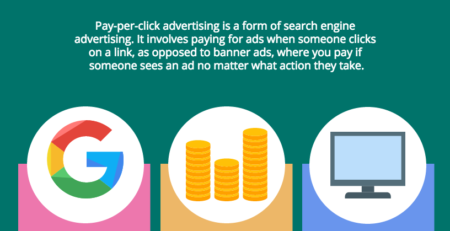
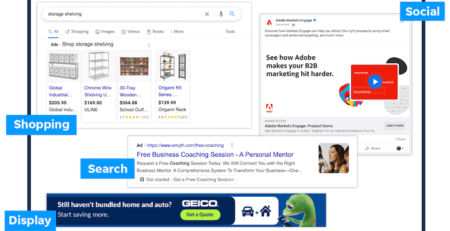
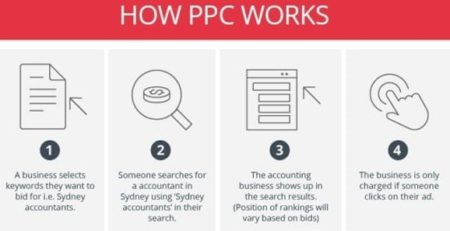
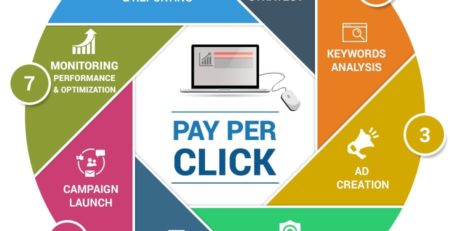
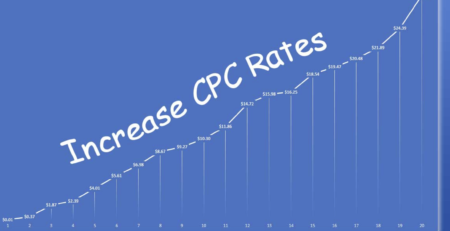
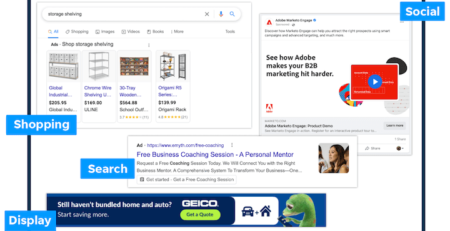
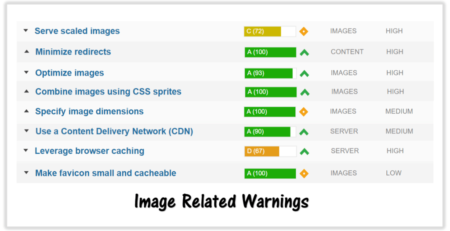
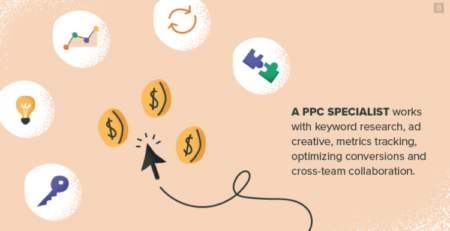
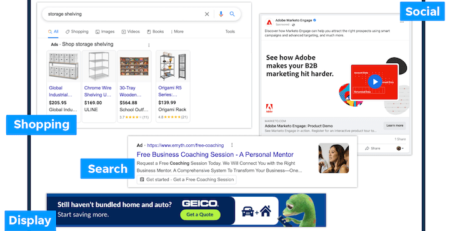
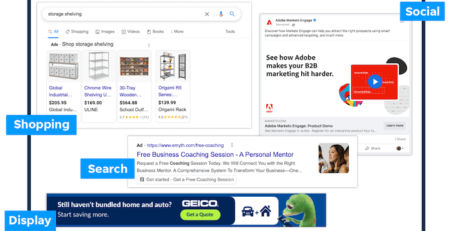
Leave a Reply